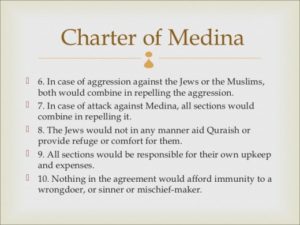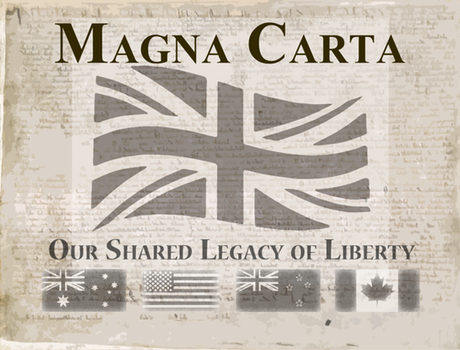The Magna Carta was signed in June 1215 between the barons of Medieval England and Kind John at Runnymede near Windsor Castle. ‘Magna Carta’ is Latin and means “Great Charter”. The Magna Carta was one of the most important documents of Medieval England.
England had for some years owned land in France. The barons had provided the king with both money and men to defend this territory. Traditionally, the king had always consulted the barons before raising taxes (as they had to collect it) and demanding more men for military service (as they had to provide the men). This was all part of the Feudal System.
So long as English kings were militarily successful abroad, relations with the barons were good. But John was not very successful in his military campaigns abroad. By 1204, John had lost his land in northern France. In response to this, John introduced high taxes without asking the barons. This was against feudal law and accepted custom.
John made mistakes in other areas as well. He angered the Roman Catholic Church. The pope, vexed by John’s behaviour, banned all church services in England in 1207. Even worse for John was the fact that the pope excommunicated him in 1209. This meant that John could never get to Heaven until the pope withdrew the excommunication. Faced with this, John climbed down and accepted the power of the Catholic Church, giving them many privileges in 1214.1214 was a disastrous year for John for another reason. Once again, he suffered military defeat in an attempt to get back his territory in northern France. He returned to London demanding more money from taxes. This time the barons were not willing to listen. They rebelled against his power. The barons captured London. However, they did not defeat John entirely and by the Spring of 1215, both sides were willing to discuss matters. The result was the Magna Carta.
Advertising Space – After your Hub is published advertisements may be placed in this space.
The Magna Carta influenced common and constitutional law, as well as political representation and the development of parliament
Magna Carta was important in the colonization of America, as England’s legal system was used as a model for many of the colonies when they were developing their own legal systems.
Nearly all of its clauses had been repealed in their original form. Three clauses currently remain part of the law of England and Wales. However, and it is generally considered part of the un-codified constitution.
Magna Carta did not generally limit the power of kings in the medieval period, but by the time of the English civil war it had become an important symbol for those who wished to show that the King was bound by the law. It influenced the early settlers in New England and inspired later constitutional documents, including the United States Constitution
Error: Contact form not found.

Americans embedded those rights into the laws of their states and later into the Constitution and Bill of Rights.
“The Fifth Amendment to the Constitution (“no person shall . . . be deprived of life, liberty, or property, without due process of law.”) is a direct descendent of Magna Carta’s guarantee of proceedings according to the “law of the land.”
Charter of Medina is the earliest document of Islam which has legal and constitutional importance of that period.
Medina was a multi-religious and multi-ethnic society. When Prophet (PBUH) migrated to Medina, he was motivated by the general welfare of citizens of Medina, commenced to establish regular and clearly- defined relations with the remaining non- Muslim communities including the Jews. The first clause of charter states, “They are a single community (ummah),” depicts the ultimate message and goal of the rest of the charter. The Charter served as a unifying document in a city of diverse groups, cultures, religions, and languages.
The Prophet – as clause 25 shows – never imposed Islam upon the people of Medina, which meant that they could still practice without disruption their religions and customs, aspects of life that were important to them. He did not create an ummah through denouncing all ways of life except for Islam or by recognizing Islam as the singular religion; The Medina Charter is arguably the first constitution ever written incorporating religion and politics
The British claim that their Magna Carta, the Great Charter, of 1215 A.D, was the first democratic constitutional document. even though the Medina Charter preceded it, by almost six centuries.
The goals of the Magna Carta were to allow King John to reconcile with the lords and barons who had been in revolt against feudal taxation and land use privileges. At the same time, the document reaffirmed the independence of the church from the Crown and publicly affirmed the King‘s acceptance of the Vatican‘s choice for Archbishop of Canterbury; Magna Carta guaranteed rights of the powerful English Barons vis-à-vis the king.
On the other hand , the Constitution of Medina guaranteed the democratic rights of the entire population of Medina, both Muslim and Non-Muslim, equally. For example, in resolution to matters as payment of blood money, avenging those wrongfully killed, providing hospitality, and taking unresolved disputes to Muhammad (PBUH), his genius is clear in the way as he transformed his role as Allah’s messenger into judge, apostle, general, and exemplar of the faith He could have, like the Christian Apostle Paul, de-emphasized temporal identities in order to place the focus solely on one‘s spiritual identity. Instead, Muhammad (PBUH) was happy to keep the existing social order intact as it provided him with opportunities for mass conversions by entire tribes, an infrastructure that managed law and order within smaller more manageable groups, and a steady stream of soldiers who could assist him in defense and in his conquest of the Arabian Peninsula.
Unfortunately for King John, he did not inspire the same level of devotion that Muhammad did. His tyrannical actions cost him the trust of his people and so his charter primarily restricts his power and obligates him to respect a wide range of rights and privileges, all the while gaining nothing more than a reaffirmation of long-established duties from his nobles
After reaffirming the independence of the church, the rest of the document lays out the rights of all free men‘.
Advertising Space – After your Hub is published advertisements may be placed in this space.
Magna Carta has introduced certain clauses in the document which resemble with the Islamic ethos and values.
Rights of Women: In medieval England, women invariably had a hard time. According to the traditions at that time
· not allowed to marry without their parents’ consent
· could own no business with special permission
· not allowed to divorce their husbands
· could not own property of any kind unless they were widows
· could not inherit land from their parents’ if they had any surviving brothers
Keeping the scenario in view, Magna Carta introduced a clause which states A widow, after the death of her husband, shall have her marriage portion and inheritance; she may remain in the house of her husband for forty days after his death, within which time her dower shall be assigned to her. Further no widow shall be compelled to marry.
Whereas in Islam the rights and financial security of women were granted six centuries back (long before Magna Carta was crafted). Under Islamic law, Muslim women have fair share in the property of her father and husband. Secondly, the approval and consent of the girl to marriage is a prerequisite for the validity of marriage in Islam. She has the right to say yes or no.
Right of justice; Magna Carta states that to no one will we refuse or delay, right or justice.
In Islam, justice is also a moral virtue and an attribute of human personality. It creates a state of equilibrium in the distribution of rights and duties. Justice is a central theme in the Quran. It clearly states
“We sent down the Book and the Balance so that mankind might uphold justice”. The guiding principles of justice are spelled by the wordings Allah in various places of Quran and through the life of holy Prophet (PBUH) an example has been set of justice and peace in day to day matters.
Unfortunately the importance of justice has been recognized as an important constitutional right in Magna Carta, six centuries late.
Appointment on merit; Magna carta states that the appointments of sheriffs, constables etc. will be made on merit . If anyone is removed from his office without any legal procedure, he will be immediately restored.
During Caliphate era the expansion of Islamic territories beyond Arab peninsula necessitated the need for administrative machinery to regulate the governance of various Islamic territories. In this regard, especially Hazrat Umer (R.A) and Hazrat Ali(R.A) took concrete steps to ensure the appointments of officials strictly on merit and competency.
One example is when Hazrat Ali (R.A), who was the fourth Caliph of Islamic regime wrote a detailed letter to then Governor of Egypt, Malik Ashtar. This letter gave a principled guidelines to the ruler of Egypt as how to run the affairs of government judiciously. The letter is an epitome of wisdom and has great historical relevance as it signified the role of the executive, judiciary and role of the administrators to address the issues faced by the common person which even today is an inspiration of modern day States as it encompasses the basic philosophies to administer the state affairs.
When analyzing the Constitution of Medina and the Magna Carta side by side, it is clear that they are texts which emerge from fundamentally different contexts. They are documents that address the particular concerns of a particular people in a particular place and time. Despite this, both of these documents retain a remarkable degree of relevance to present constitutional discourse as founding documents of Western and Islamic protections of the rights and duties. In the case of the Constitution of Medina, its enduring power mainly lies in its constituent parts being authored by Muhammad himself, and by Muhammad‘s role as Prophet/exemplar for the world‘s 1.6 billion Muslims. Likewise the Magna Carta highlights the tension in Christendom and its successor states between the need to govern using secular and even violent forms of power, while acting in accordance with the respect for individual rights. one does find well-established, time-tested principles that have achieved wide acceptance and legitimacy amongst the societies they represent.








